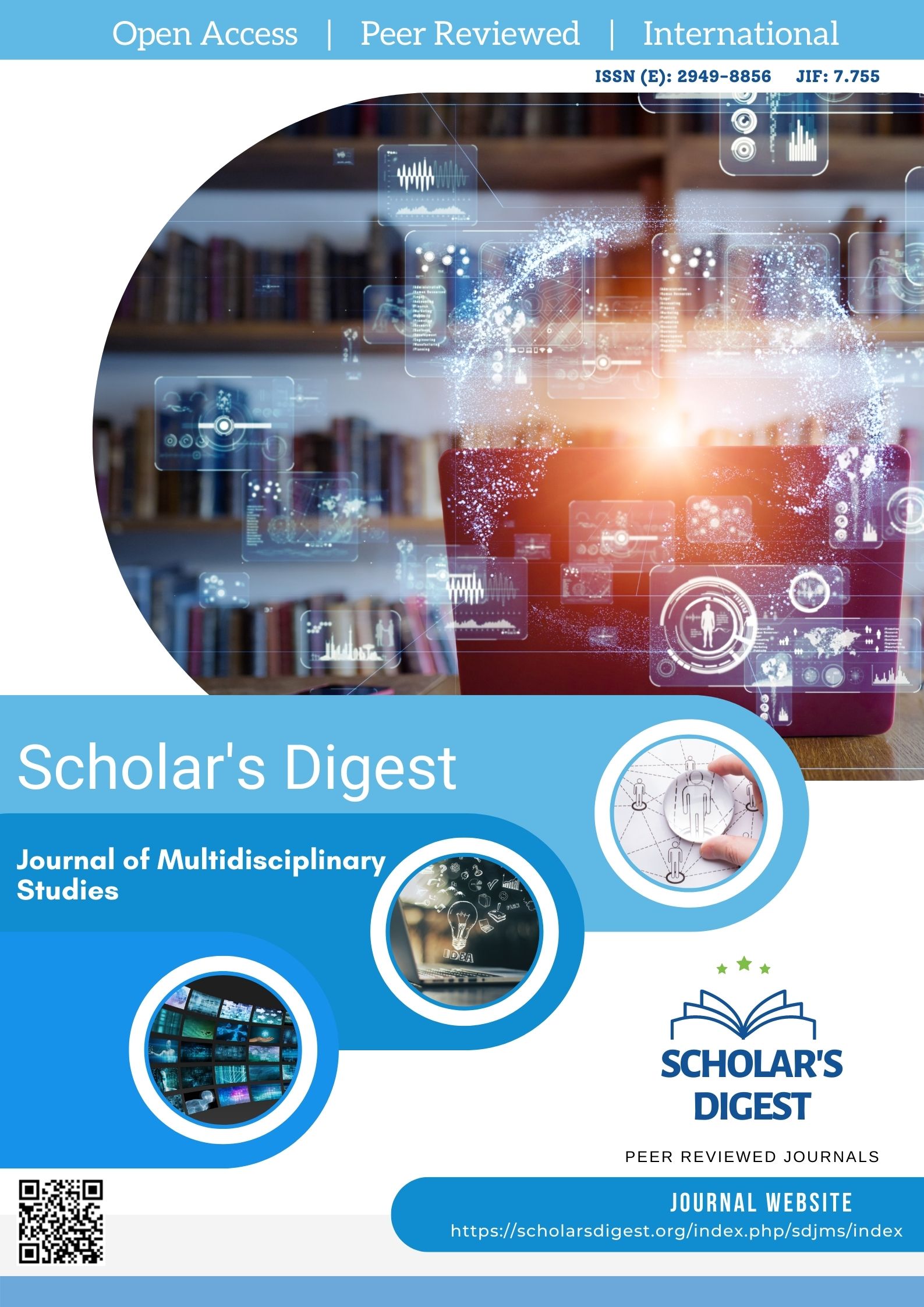THE MECHANISM OF IMPLEMENTING ELECTRONIC MANAGEMENT AND ITS ROLE IN DEVELOPING ADMINISTRATIVE PERFORMANCE AMONG ADMINISTRATIVE AND TECHNICAL LEADERS IN SPORTS CLUBS
Keywords:
Electronic Management, Administrative Performance, Administrative Leadership.Abstract
Abstract This study aims to identify the human and administrative obstacles hindering the implementation of electronic management in sports clubs. It also seeks to explore the financial and technical challenges associated with the adoption of electronic management systems, as well as to assess the extent to which electronic management contributes to the development of administrative performance within sports clubs. Furthermore, the study investigates strategies to overcome the challenges facing the implementation of electronic management in these institutions. The descriptive approach was employed, given its suitability for the nature of the research. The researcher developed a questionnaire comprising six main dimensions, encompassing a total of eighty items. The research sample consisted of 115 individuals distributed across various Iraqi sports clubs. The study concluded that there is an insufficient number of technical staff capable of operating modern electronic devices and communication technologies. Moreover, there is a lack of an organizational structure dedicated to electronic management within clubs, as well as inadequate financial allocations to organize lectures, seminars, and workshops related to electronic management applications. The study recommends the necessity of employing enough technicians proficient in handling all modern electronic devices and communication tools. It also emphasizes the importance of training staff to use electronic technologies effectively, appointing qualified personnel to manage electronic systems within clubs, increasing the number of human resources specialized in electronic management, organizing training courses on electronic management mechanisms for club staff, and providing adequate budget allocations for the acquisition of modern electronic technologies.
References
Ahmed Mohamed El-Masry: Modern Management of Communications - Information - Decisions, Youth University Foundation, Alexandria, 2000.
Eman Fouad Ahmed Al-Alam: Obstacles to the Application of E-Governance in Human Resource Management from the Perspective of HR Managers and Employees at the Palestinian Ministry of Health in the Ramallah Governorate, master’s Thesis, Al-Quds University, Palestine, 2018.
Rabea Shafiq Ateer: The Reality of E-Governance at Palestine Technical University and Ways to Develop It, Palestinian Journal, Al-Quds Open University, Issue 9, Palestine, 2014.
Abdel-Salam Marouf Ali: The Possibility of Applying E-Governance in Libyan Industrial Organizations, master’s Thesis, College of Economics, University of Al-Bayda, 2007.
Abdel-Qader Mohamed Abdel-Qader Amro: A Proposed Model for Implementing E-Governance in Youth Centers in the Arab Republic of Egypt, master’s Thesis, College of Physical Education for Boys, Helwan University, Cairo, 2018.
Ali Al-Sulami: Thoughts on Contemporary Management, Dar Gharib for Printing, Publishing, and Distribution, Cairo, 2001.
Kulthum Mohamed Al-Kubaisi: Requirements for Implementing E-Governance at the Information Systems Center of the E-Government in the State of Qatar, master’s Thesis, Qatar, 2008.
Mohamed Gamal Akram Ammar: The Feasibility of Applying E-Governance at UNRWA and Its Role in Improving Employee Performance, master’s Thesis, College of Commerce, Islamic University, Gaza, 2009.
Mohamed Jameel Shaheen: Requirements for Implementing E-Governance for Service Delivery and Employee Attitudes Towards It at the General Administration of Student Care at Menoufia University, Unpublished Master's Thesis, College of Physical Education, Benha University, 2012.
Maysar Ahmed Hassan, Sinan Qassem Hussein: Identifying Obstacles to the Implementation of E-Governance at Duhok University and Its Colleges: A Field Study, Academic Journal, University of Nurouz, Volume 1, Issue 1.
Downloads
Published
Issue
Section
License

This work is licensed under a Creative Commons Attribution-NonCommercial 4.0 International License.








